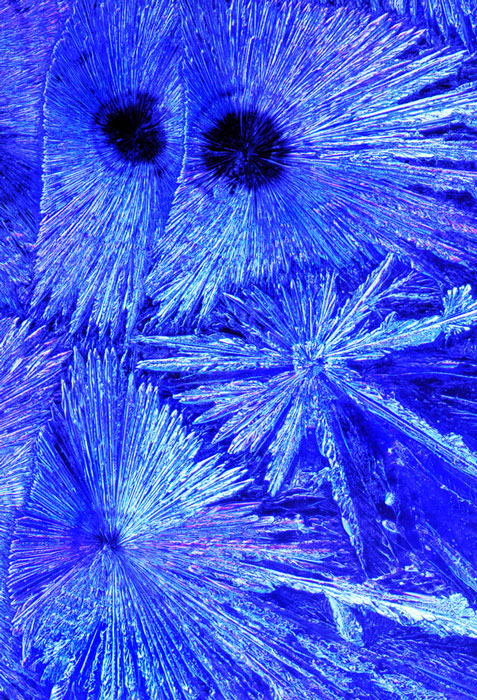 Chondroitin sulphate (Poly[(N-acetyl-D-galactosamine-4-O-hydrogen sulphate)-(L-iduronic acid)]); also known as chiondroitin sulphate; abbreviated as CS) is a sulphurised and unbranched glucosamine glycan. The sugar derivative N-acetyl galactosamine and glucuronic acid are monomer building blocks of chondroitin sulphate. They form high-molecular polymer chains. Chondroitin sulphate is therefore one of the biopolymers. A structural differentiation is made between chondroitin sulphate A, B and C. In the animate natural world, condroitin sulphate is usually bound to proteins and in this form is one of the proteoglycans or mucopolysaccarides. The biomedical interest in the natural substance is based on its high concentration in the cartilaginous tissue.
Chondroitin sulphate (Poly[(N-acetyl-D-galactosamine-4-O-hydrogen sulphate)-(L-iduronic acid)]); also known as chiondroitin sulphate; abbreviated as CS) is a sulphurised and unbranched glucosamine glycan. The sugar derivative N-acetyl galactosamine and glucuronic acid are monomer building blocks of chondroitin sulphate. They form high-molecular polymer chains. Chondroitin sulphate is therefore one of the biopolymers. A structural differentiation is made between chondroitin sulphate A, B and C. In the animate natural world, condroitin sulphate is usually bound to proteins and in this form is one of the proteoglycans or mucopolysaccarides. The biomedical interest in the natural substance is based on its high concentration in the cartilaginous tissue.
Functions of chondroitin sulphate
- Chondroitin sulphate is a functionally significant building block of the connective and supportive tissue. The natural substance is particularly relevant for the cartilage matrix where it is present in the form of aggrecans and accounts for up to 40 % of the dry matter. Aggracans exhibit a high density of negative charges and when hydrated form a hydrated gel structure. This is what gives the cartilage its elasticity and viscosity.
Useful information.
- The synthesis of chondoitin primarily takes place in the chondroblasts and is an energy-intensive, multi-stage process.
- In older age, the synthesis of chondoitin sulphate and aggrecans are impaired; the cartilage matrix thus loses its elasticity and pressure resistance.
Information on production technology
- INTERCELL Pharma has a specially developed filing technology. This enables particularly high quantities of 900 mg of glucosamine and chondroitin to be contained within a 00 size capsule.
© Intercell Pharma GmbH



